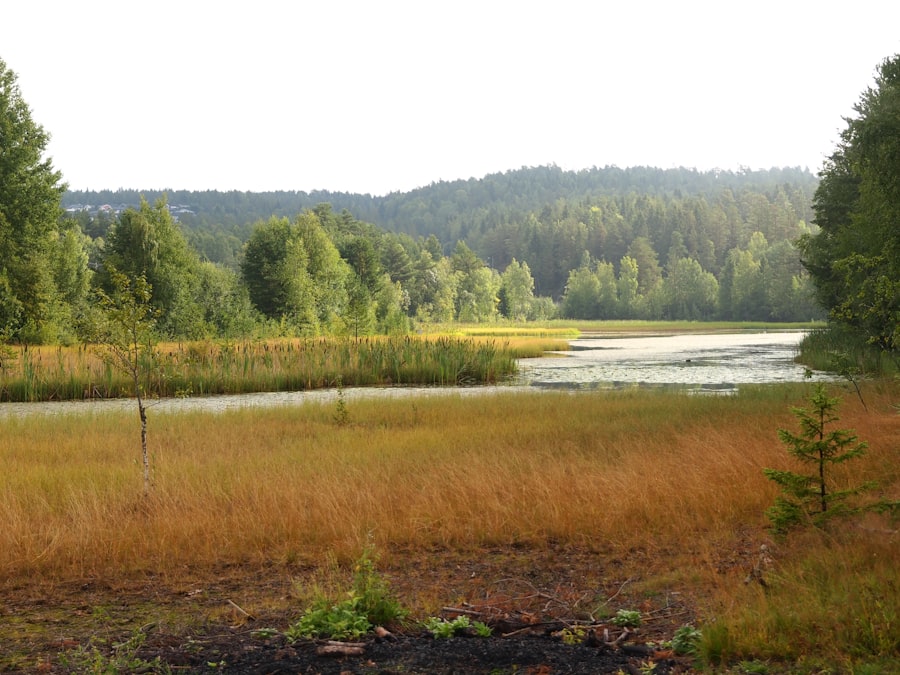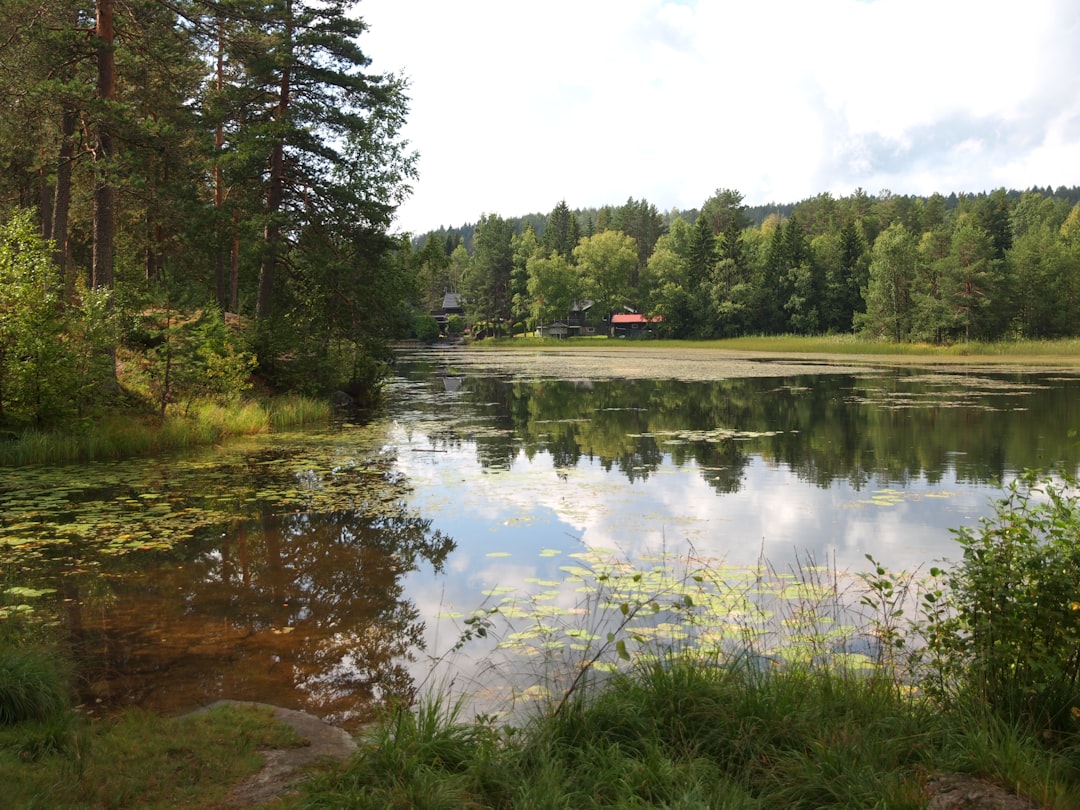In Norway, the ‘Russ’ tradition is a rite of passage that marks the transition from high school to adulthood. This vibrant celebration, which takes place annually in May, is steeped in history and cultural significance. For Norwegian youth, ‘Russ’ is not merely a festive occasion; it embodies a sense of camaraderie, freedom, and the bittersweet farewell to their school years.
The participants, known as ‘Russ’, don distinctive red or blue overalls, depending on their educational track, and engage in a month-long series of festivities that include parties, parades, and various challenges. This period is characterised by a spirit of rebellion and joy, as students celebrate their achievements and the friendships forged during their formative years. The importance of ‘Russ’ extends beyond mere celebration; it serves as a cultural touchstone that fosters a sense of belonging among young Norwegians.
It is a time when they can express their individuality while also participating in a collective experience that has been passed down through generations. The rituals associated with ‘Russ’, such as the iconic ‘Russ’ buses and the playful pranks, create lasting memories that shape their identities. For foreign parents navigating this unique aspect of Norwegian youth culture, understanding the significance of ‘Russ’ is crucial in fostering connections with their children and the local community. Plan your relocation with confidence. Book a personal meeting with the Norway Relocation Group today.
Summary
- ‘Russ’ is a significant part of Norwegian youth culture, representing a rite of passage and a time of celebration for graduating high school students.
- When planning a birthday party in Norway, it’s important to incorporate ‘Russ’ traditions to ensure a memorable and culturally immersive experience for the birthday celebrant and their guests.
- The history and evolution of ‘Russ’ celebrations in Norway provide insight into the cultural significance and societal impact of this tradition.
- Hosting a birthday party during ‘Russ’ season can present challenges, such as managing peer pressure and ensuring safety amidst the festivities.
- Foreign parents can embrace Norwegian youth culture by familiarising themselves with ‘Russ’ customs and integrating them with traditional birthday party elements.
Planning a Birthday Party in Norway: Incorporating ‘Russ’ Traditions
When planning a birthday party for a child during the ‘Russ’ season, it is essential to consider how to incorporate elements of this vibrant tradition. Given that many young people are deeply immersed in ‘Russ’ activities during this time, parents can creatively blend birthday celebrations with the spirit of ‘Russ’. One approach could be to host a themed party that embraces the colours and symbols associated with ‘Russ’, allowing guests to wear their overalls and participate in fun activities that reflect the celebratory nature of this period.
Incorporating ‘Russ’ traditions into a birthday party can also involve organising games and challenges reminiscent of those undertaken by ‘Russ’ participants. For instance, setting up obstacle courses or scavenger hunts can evoke the playful spirit of competition that characterises ‘Russ’. Additionally, serving traditional Norwegian snacks and drinks can enhance the cultural experience for all attendees.
By merging birthday festivities with ‘Russ’ customs, parents can create an unforgettable celebration that resonates with both the birthday child and their friends.
Exploring the History and Evolution of ‘Russ’ Celebrations

The origins of ‘Russ’ celebrations can be traced back to the late 19th century when students began to commemorate their graduation from secondary school. Initially, these celebrations were modest affairs, but over time they evolved into the grand festivities we see today. The modern-day ‘Russ’ tradition has been influenced by various cultural factors, including music, fashion, and social media, which have all played a role in shaping how young people engage with this rite of passage.
As ‘Russ’ celebrations have evolved, so too have the customs and practices associated with them. The introduction of themed buses, elaborate costumes, and social media challenges has transformed ‘Russ’ into a spectacle that captures the attention of not only participants but also the wider community. This evolution reflects broader societal changes and highlights how traditions can adapt while still retaining their core essence.
Understanding this historical context can provide valuable insights for parents seeking to navigate their children’s experiences during this significant time.
Navigating the Challenges of Hosting a Birthday Party During ‘Russ’ Season
Hosting a birthday party during the ‘Russ’ season can present unique challenges for parents. With many young people preoccupied with their own celebrations and activities, it may be difficult to secure attendance from friends who are fully immersed in the festivities. Additionally, parents may find it challenging to strike a balance between honouring traditional birthday customs while also acknowledging the significance of ‘Russ’.
To navigate these challenges effectively, communication is key. Parents should consider discussing potential party dates with their child and their friends to ensure maximum participation. It may also be beneficial to plan the party for a time when ‘Russ’ activities are less intense, such as early in May or after the main celebrations have concluded.
By being flexible and understanding of the demands placed on young people during this time, parents can create an enjoyable birthday experience that respects both personal milestones and cultural traditions.
Embracing Norwegian Youth Culture: Tips for Foreign Parents
For foreign parents raising children in Norway, embracing local youth culture can be both rewarding and challenging. Understanding traditions like ‘Russ’ is essential for fostering connections with their children and helping them navigate social dynamics within their peer groups. One effective way to engage with Norwegian youth culture is by participating in community events and activities that celebrate local customs.
This involvement not only enriches family life but also provides opportunities for parents to connect with other families. Additionally, foreign parents should encourage open dialogue with their children about their experiences during ‘Russ’. By showing interest in their child’s participation in this tradition, parents can foster a sense of pride and belonging.
It is also important for parents to educate themselves about the nuances of Norwegian culture, including language, customs, and social expectations. This knowledge will empower them to support their children as they navigate the complexities of growing up in a different cultural context.
Balancing Traditional Birthday Party Elements with ‘Russ’ Customs

When planning a birthday party during the ‘Russ’ season, finding a balance between traditional birthday elements and ‘Russ’ customs is essential for creating an inclusive atmosphere. While it is important to honour the birthday child’s preferences—such as cake, gifts, and decorations—incorporating aspects of ‘Russ’ can enhance the overall experience for guests. For example, parents might consider using red and blue colour schemes for decorations or incorporating playful elements like games inspired by ‘Russ’ challenges.
Moreover, blending traditional birthday activities with ‘Russ’ customs can create a unique celebration that resonates with all attendees. For instance, parents could organise a karaoke session featuring popular songs from the ‘Russ’ season or set up photo booths where guests can capture memories in their overalls. By thoughtfully integrating these elements, parents can create an engaging environment that celebrates both personal milestones and cultural traditions.
Addressing Safety Concerns and Peer Pressure During ‘Russ’ Celebrations
As with any significant youth celebration, safety concerns and peer pressure are important considerations during ‘Russ’. The exuberance associated with this period can sometimes lead to risky behaviours among participants. Parents must remain vigilant and proactive in addressing these issues while supporting their children’s desire to engage in this cultural experience.
Open communication about expectations regarding safety and responsible behaviour is crucial. Parents should also encourage their children to establish boundaries when it comes to peer pressure during ‘Russ’. Discussing potential scenarios where they may feel pressured to partake in risky activities can empower young people to make informed decisions.
Additionally, fostering an environment where children feel comfortable discussing their experiences can help them navigate challenges more effectively while still enjoying the festivities.
Collaborating with Other Parents to Navigate ‘Russ’ and Birthday Party Planning
Collaboration among parents can be invaluable when navigating the complexities of hosting a birthday party during the ‘Russ’ season. By working together, parents can share insights, resources, and ideas that enhance the overall experience for everyone involved. For instance, coordinating with other parents to organise joint celebrations or group outings can alleviate some of the logistical challenges associated with planning individual parties.
Moreover, collaborating with other parents allows for a more comprehensive understanding of how to incorporate ‘Russ’ traditions into birthday celebrations. By pooling ideas and resources, families can create memorable experiences that honour both personal milestones and cultural customs. This sense of community not only enriches individual celebrations but also strengthens connections among families within the neighbourhood.
Discussing ‘Russ’ and Birthday Party Expectations with Your Child
Engaging in open discussions about expectations surrounding both ‘Russ’ celebrations and birthday parties is essential for fostering understanding between parents and children. Parents should take the time to listen to their child’s thoughts and feelings about participating in ‘Russ’, as well as what they envision for their birthday celebration. This dialogue can help clarify any misconceptions or anxieties while ensuring that both parties are on the same page regarding plans.
Additionally, discussing potential compromises or adjustments to traditional birthday elements in light of ‘Russ’ customs can lead to more meaningful celebrations. By involving children in the planning process, parents empower them to take ownership of their experiences while also respecting cultural traditions. This collaborative approach fosters mutual respect and understanding within the family unit.
Seeking Guidance from Local Resources and Community Members
For foreign parents navigating Norwegian culture during significant events like ‘Russ’, seeking guidance from local resources can be immensely helpful. Community centres, schools, and local organisations often provide valuable information about cultural practices and events that can assist families in understanding how to engage meaningfully with traditions like ‘Russ’. Additionally, connecting with other families who have experience with ‘Russ’ celebrations can offer practical insights into planning successful birthday parties during this time.
Engaging with local community members fosters connections that enrich family life while providing support as parents navigate cultural nuances.
Reflecting on the Experience: Nurturing Cultural Understanding and Integration through Birthday Parties and ‘Russ’
Ultimately, hosting a birthday party during the ‘Russ’ season presents an opportunity for foreign parents to nurture cultural understanding and integration within their families. By embracing local traditions while honouring personal milestones, families can create meaningful experiences that resonate across cultures. Reflecting on these celebrations allows parents to appreciate the richness of Norwegian youth culture while fostering connections within their community.
As families engage with traditions like ‘Russ’, they not only create lasting memories but also contribute to a broader understanding of cultural diversity. This journey towards integration enriches family life while providing children with valuable insights into their heritage. In this context, learning Norwegian through courses at institutions like the NLS Norwegian Language School in Oslo can further enhance cultural immersion by equipping families with language skills that facilitate deeper connections within their community.
Embracing both personal milestones and cultural traditions ultimately fosters a sense of belonging that transcends borders.

